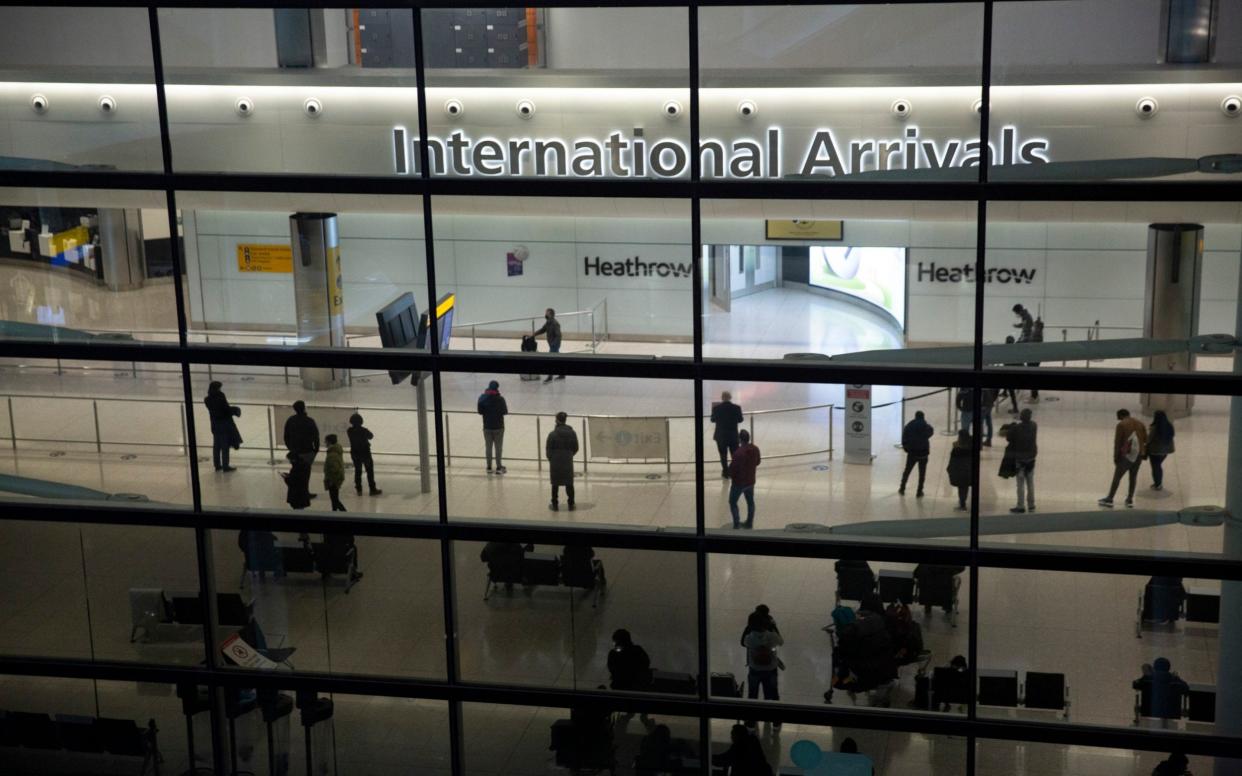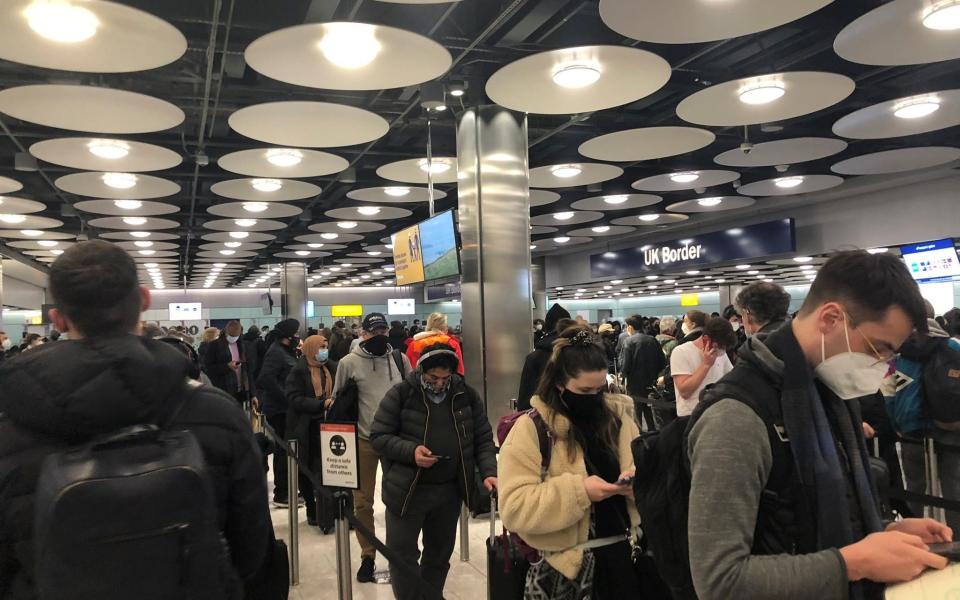Hotel quarantine for 30 high-risk nations

Britons in up to 30 countries will have to pay for hotel quarantine if they return to the UK to prevent new Covid variants reaching this country from South Africa and South America.
Boris Johnson was on Tuesday night expected to approve the plans for Australian-style hotel quarantine that will cost travellers up to £1,500 for 10 days self-isolating with meals served in their rooms and supervised by private security guards.
The Cabinet’s Covid operations committee was expected to back away from imposing the requirement for quarantine hotels on all returning Britons and instead limit it to the 30 “high risk” countries currently covered by a travel ban for foreigners. All 30 bar Portugal and Cape Verde are in or around South Africa and South America, where three Covid variants have emerged, in addition to the one that emerged in Kent.
At least four more countries – Kenya, Nigeria, Ethiopia and the United Arab Emirates – may be added to the list because of the risk from the variants.
It means that any of the 345,000 Britons living or working in the 30-plus countries will have to quarantine in Government-approved hotels if they return to the UK. Ireland announced mandatory quarantine at government-designated facilities for all arrivals from just Brazil and South Africa and anyone who arrives without a negative PCR covid test. Despite the Common Travel Area, it is understood that the UK rules are set to be stricter.
The moves come on top of rules requiring all travellers to have negative Covid test results from within 72 hours of departure and to quarantine. All passengers’ test certificates and locator forms are now being checked on arrival, leading to queues at Heathrow (pictured below).

However, there will be pressure to extend the quarantine hotels to Britons returning from other countries as it emerged that there are a further 22 nations that have identified cases of the Brazilian and South Africa variants.
The 22 include countries with relatively high rates of coronavirus, more than 300 per 100,000, such as Spain, the Netherlands, Switzerland, Canada, Germany, Italy and France.
Priti Patel, the Home Secretary, and Matt Hancock, the Health Secretary, are understood to have been pushing for tougher Australian-style measures that include a full border closure.
Jeremy Hunt, the former health secretary, has also said the UK “may need to go further” by requiring all arrivals to quarantine in hotels.
Dr Gabriel Scally, the president of epidemiology and public health of the Royal Society of Medicine, said: “It doesn’t go far enough. It should be universal and there should be no exemptions.”
Paul Charles, chief executive of The PC Agency, the travel consultancy, said: “Once they have these restrictions in place, they will grow and grow. That’s why the prediction of the Government leaving these measures in place for a year is very realistic.”
Nadhim Zahawi, the vaccines minister, yesterday warned Britons against booking summer holidays abroad, saying it was “far too early” with 37,000 people still in hospital being treated for Covid-19.

